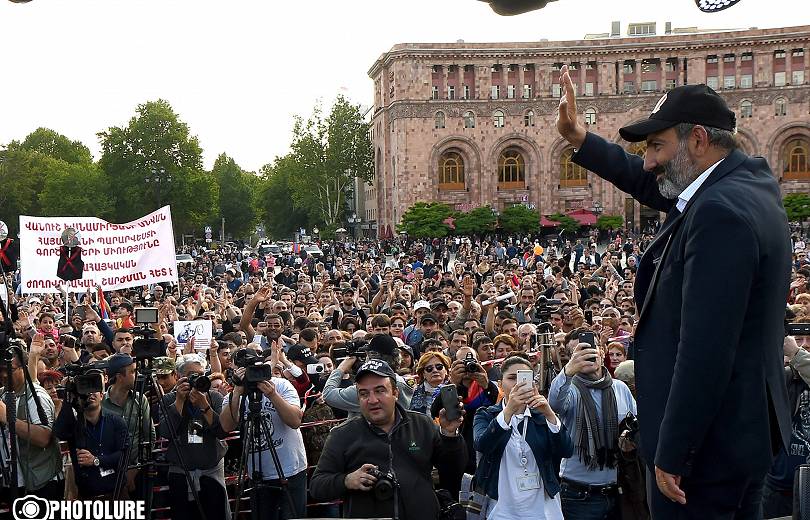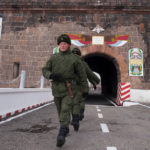- 9 October, 2018
- Democracy and Human Rights

One of the most common and circulating words in the post-revolutionary political vocabulary in recent months is the word “euphoria”. Being speculated by various political forces and figures, it seems to have become a political term to characterize the cause, the motives of social and political moods and processes.
Many post-revolutionary processes are directly explained by that mysterious and omnipotent phenomenon. The very high rating of the political leaders, unreserved public support, ability to quickly mobilize popular masses, charismatic behavior and other manifestations are directly referred to revolutionary euphoria, some expectations and more.
But is the revolutionary euphoria still there, does it still remain the driving force that predetermines the determination, radical views of the “revolutionary” part of the society? And is it possible to “feed” and keep that “sensory” process among the public for such a long time? All “anti-revolutionary” political forces and their “independent” analysts claim the truth of this provision.
However, the reality is quite different. In fact, there is no euphoria, it has long “ended” or, rather, transformed into a very sober and rational viewpoint and assessment of the current situation and ongoing processes by the public.
Today these approaches are quite simple and clear, and lead to the following unambiguous realities:
- – There is a leader who has “liberated” the country from the political clan and has an unprecedented high degree of political legitimacy in the history of independent Armenia.
- – The public unconditionally recognizes him as a charismatic leader. And no wonder various attributes with the image of the leader are so widely popular. Politicians, anthropologists, and sociologists will affirm that this is a manifestation of a real political process and not idolatry.
- – There is the people who will follow that leader, no matter how much he or she makes big and minor managerial wrong decisions with his team of non-professionals, because the people very soberly assess the situation and very clearly see that today there is only the dilemma between the old and the new, there are simply no other options.
- – That huge mobilization resource will be maintained as long as the people feel the real threat of revenge.
- – And after two decades, the public has finally regained its sense of being the owner of the country, the opportunity to actively participate in political processes and to see the outcome of that participation. This is a unique value, people are deeply aware of that value and will retain that opportunity at any cost.
Speculating endlessly on euphoria and building a policy on that speculation is a political short-sightedness.
Old forces are not competitive
There is no alternative to snap parliamentary elections and de jure fixing of the people’s real power.
And it will not be awful if there is a “political default”, if none of the current political forces in Armenia gets the real vote of the public, and will appear in Parliament only due to the “33% to opposition forces” regulation of the RA Electoral Code. It must be stated that the political parties functioning in Armenia were “fully adapted” to surviving and working in the “old Armenia” political field and system… a system where the intra-political intrigues, behind-the-scenes negotiations and quota, election bribes and widespread use of power resources were prevalent… a system where ideology had long been replaced by hypocrisy, where political parties had turned into big and small merchants.
More than 4 months of post-revolutionary processes have shown that existing parties are unable to understand the new reality, change with their stances and tactics, adapt to new realities. They are no longer competitive.
The political field has to seriously transform. It must be subjected to rapid evolution, the old species should become “extinct”, new ones should emerge, with new political figures, programs and ideologies. New parties should adopt new tools, new principles and methodology of working with the society, to fit the new situation. The new society can no longer be governed by old methods. And that the society has changed is beyond doubt.
Serob Antinyan




